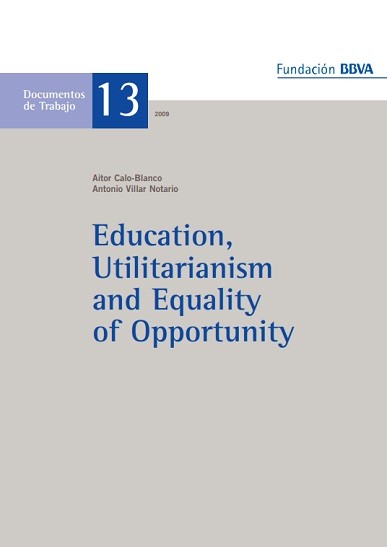
PublicationWorking Papers
Education, Utilitarianism and Equality of Opportunity
We analyze in this working paper the impact of different policies on the investment of families in the education of their children. In the model we present, families make decisions on the level of human capital of their offspring with a view to the future income that this capital will entail (under the assumption that higher education levels yield higher expected income).
Families’ optimal investment in education depends on their preferences (summarized by their time discount and risk aversion parameters) and their circumstances (initial wealth, parents’ education, and children’s natural abilities). The public authority designs a balanced tax/subsidy scheme in order to maximize aggregate welfare. We compare the case of a purely utilitarian planner with one that cares about equality of opportunity.
